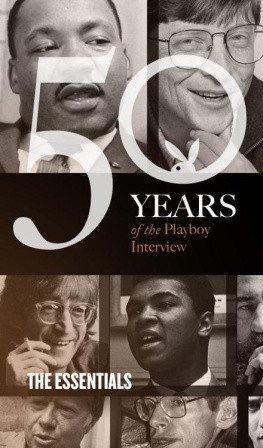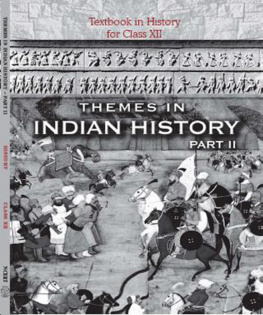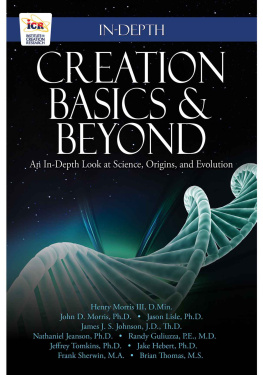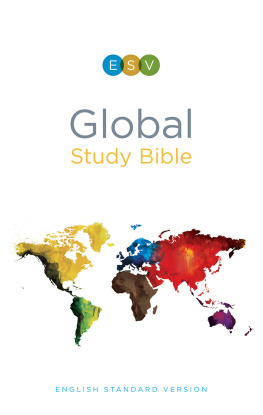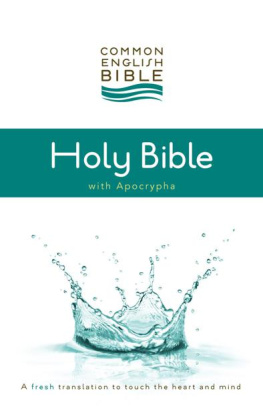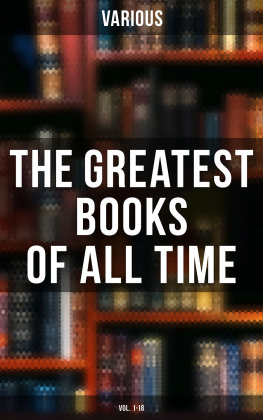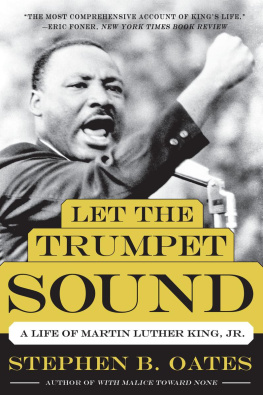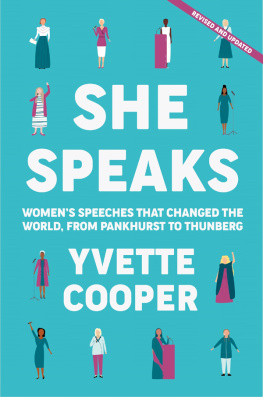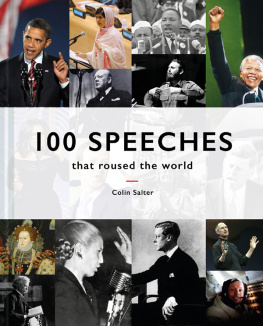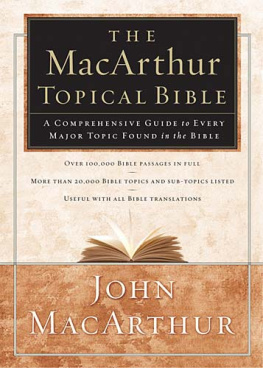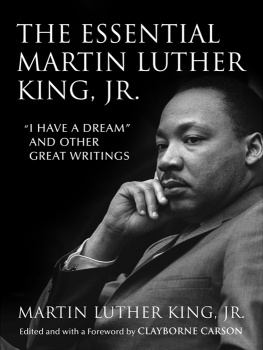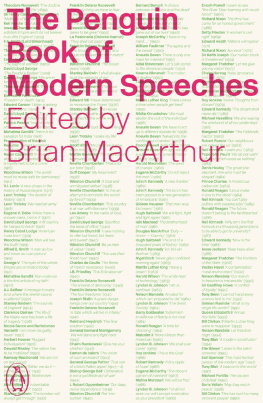PENGUIN BOOKS
THE PENGUIN BOOK OF HISTORIC SPEECHES
Brian MacArthur is associate editor of The Times. He was founder editor of Today and The Times Higher Education Supplement, editor of the Western Morning News and former deputy editor of the Sunday Times. He has written Eddy Shah, Today and the Fleet Street Revolution and Deadline Sunday, and edited Gulf War Despatches. He has been interested in the power of oratory since first hearing Aneurin Bevan on the hustings in 1956 and has edited a companion anthology, The Penguin Book of Twentieth-Century Speeches.
Brian MacArthur lives in London and has two daughters.
THE PENGUIN BOOK OF

HISTORIC SPEECHES

EDITED BY BRIAN M AC ARTHUR

PENGUIN BOOKS
PENGUIN BOOKS
Published by the Penguin Group
Penguin Books Ltd, 80 Strand, London WC2R 0RL, England
Penguin Putnam Inc., 375 Hudson Street, New York, New York 10014, USA
Penguin Books Australia Ltd, 250 Camberwell Road, Camberwell, Victoria 3124, Australia
Penguin Books Canada Ltd, 10 Alcorn Avenue, Toronto, Ontario, Canada M4V 3B2
Penguin Books India (P) Ltd, 11 Community Centre, Panchsheel Park, New Delhi 110 017, India
Penguin Books (NZ) Ltd, Cnr Rosedale and Airborne Roads, Albany, Auckland, New Zealand
Penguin Books (South Africa) (Pty) Ltd, 24 Sturdee Avenue, Rosebank 2196, South Africa
Penguin Books Ltd, Registered Offices: 80 Strand, London WC2R 0RL, England
www.penguin.com
First published by Viking 1995
Published in Penguin Books 1996
The selection copyright Brian MacArthur, 1995
All rights reserved
The moral right of the editor has been asserted
The acknowledgements on constitute an extension of this copyright page
Except in the United States of America, this book is sold subject to the condition that it shall not, by way of trade or otherwise, be lent, re-sold, hired out, or otherwise circulated without the publishers prior consent in any form of binding or cover other than that in which it is published and without a similar condition including this condition being imposed on the subsequent purchaser
ISBN: 978-0-14-196070-8
For Tessa MacArthur
CONTENTS
There are two arts which raise men to the highest places of preferment: one is that of the great soldier, the other that of the accomplished orator; for by the former the glories of peace are preserved, by the latter the perils of war are driven away.
Cicero
The business of the orator is not to convince, but persuade; not to inform, but to rouse the mind; to build upon the habitual prejudices of mankind (for reason of itself will do nothing) and to add feeling to prejudice, and action to feeling.
William Hazlitt on William Pitt the Elder
A speech is a soliloquy, one man on a bare stage with a big spotlight. He will tell us who he is and what he wants and how he will get it and what it means that he wants it and what it will mean when he does or does not get it He looks up at us on the balconies and clears his throat. Ladies and Gentlemen We lean forward hungry to hear. Now it will be said, now we will hear the thing we long for. A speech is part theatre and part political declaration; it is personal communication between a leader and his people; it is art, and all art is paradox, being at once a thing of great power and great delicacy. A speech is poetry: cadence, rhythm, imagery, sweep! A speech reminds us that words, like children, have the power to make dance the dullest beanbag of a heart Speeches are important because they are one of the great constants of our political history. They have been not only the way we measure public men, they have been how we tell each other who we are They count. They more than count, they shape what happens.
Peggy Noonan
INTRODUCTION
The speeches of Moses, Jesus of Nazareth and Muhammad to their followers are still inspiring men and women to lead lives based on a moral code and still, today, changing the course of history. Two thousand years on it is all too easy to wonder whether the speeches of any of our contemporary leaders Clinton, Major, Kohl or Mitterrand, Pope John Paul, Archbishop George Carey or the mullahs of Iran will still be read in the year 4,000, let alone with any inspirational effect. Even as global television magnifies the power of oratory and propels contemporary speakers to audiences undreamt of in the days of Chatham and Fox, Webster and Lincoln, Disraeli and Gladstone audiences counted in hundreds of millions contemporary wisdom mourns the decline of oratory. Yet, as this anthology demonstrates, the twentieth century has produced speakers Gandhi, Roosevelt, Hitler, Churchill who stand comparison with the greatest orators of the past; and even in the 1990s the speeches of Vaclav Havel and Nelson Mandela transcend national boundaries and inspire mankind.
The aim of this anthology is to collect together some of the greatest speeches made during our (mainly Western) history and to show their power to move hearts or inspire great deeds, to uplift spirits or cast down enemies. Studying oratory, moreover, offers powerful insights into the motives and ideals of the men and women who made history. There is a bias towards speeches that still read well, which were spoken nobly and with eloquence, and which contained phrases or soundbites that were immortal. Most of the speeches changed votes or changed minds and swayed the course of history whether within their nations or across the world. Many have the poetry and the beauty of great literature. Above all, they were genuinely historic.
When Demosthenes spoke, he roused the Athenians to march on Philip of Macedonia. When Cicero spoke, even Caesar trembled and only when Demosthenes and Cicero were silenced did despotism triumph in Greece and Rome. When Queen Elizabeth I spoke, men bowed at her knees. Yet when John Pym raised the cry of England, a king lost his head. When James Otis and Andrew Hamilton and John Hancock defied the British colonialists they raised the flag of American independence.
Who can doubt, said the great American orator Daniel Webster, that in our struggle for independence, the majestic eloquence of Chatham, the profound reasoning of Burke had influence on our fortunes in America? They tended to diminish the confidence of the British ministry in their hopes to subject us. There was not a reading man who did not struggle more boldly for his rights when those exhilarating sounds, uttered in the two Houses of Parliament, reached him across the seas. Mirabeau, by the power of his oratory, directed the storm of the French Revolution. When he told the Kings emissary: Slave, go tell your master that we are led by the will of the people and will depart only at the point of the bayonet, his words sounded the trumpet throughout Europe and sealed the fate of Louis XVI.
When the nullifiers of South Carolina threatened the federal Constitution, it was Webster himself who raised the banner. As the champion of New England closed the memorable peroration of his reply to Hayne, according to one contemporary account, the silence of death rested upon the crowded Senate chamber The sharp rap of the Presidents hammer could hardly awaken the audience from the trance into which the orator had thrown them.
The speeches of Lord Chatham (William Pitt the Elder) feature strongly in any discussion of oratory. Their power, the power detected across the sea by Webster and the power which throbs throughout this anthology, was never better captured than by William Hazlitt: His genius burnt brightest at the last. The spark of liberty which had lain concealed and dormant, buried under the dirt and rubbish of state intrigue and vulgar faction, now met with congenial matter and kindled up a flame of sacred vehemence in his breast. It burst forth with a fury and a splendour that might have awed the world and made kings tremble. He spoke as a man should speak, because he felt as a man should feel in such circumstances. He came forward as the advocate of liberty, as the defender of the rights of his fellow citizens, as the enemy of tyranny, as the friend of his country and of mankind He did not try to prove those truths which did not require any proof but to make others feel them with the same force that he did and to tear off the flimsy disguises with which the sycophants of power attempted to cover them. The business of the orator is not to convince, but persuade; not to inform, but to rouse the mind; to build upon the habitual prejudices of mankind (for reason of itself will do nothing) and to add feeling to prejudice, and action to feeling.
Next page

